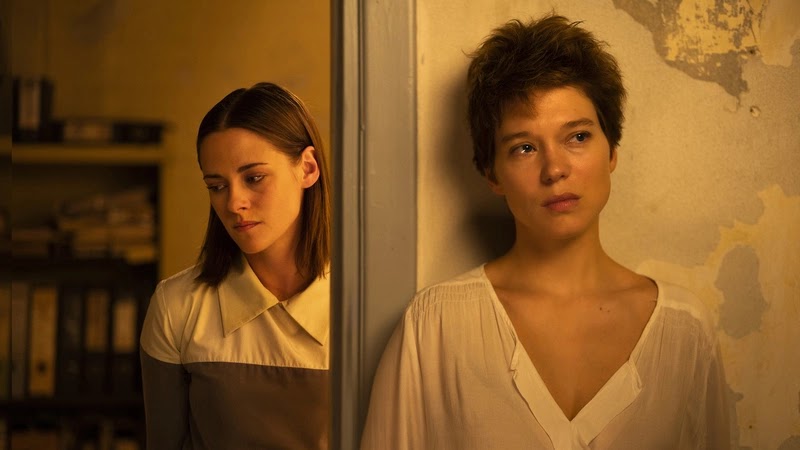Crimes of the Future is the latest body horror masterpiece from David Cronenberg, a late period gem from the director that joins the ranks of other modern marvels from the great auteurs - Jean Luc-Godard and The Image Book, Agnes Varda and Faces Places, Martin Scorsese and The Irishman and Paul Schrader and The Card Counter. Its festival circuit run saw it earn comparisons to Julia Ducournau’s Titane - yet arguably it has more in common with Claire Denis’ High Life.
We’re witnessing in this film the next stage in human evolution, a fine theory presented to us by Cronenberg that looks at how different perspectives can emerge when people don’t feel pain the way they used to and new body parts grow at will. Some people embrace the new changes, taking the extraction of these body parts as performance art or starting a cult dedicated to those being able to eat plastic - others are repulsed by its very nature. The Government aren’t ready for this new world order just yet - and a mother kills her own son after she finds him eating a plastic bin without repercussions before turning herself in. Pain, or surgery - is the new sex - the old sex is barely present anymore.
Cronenberg immerses you in this new would with a sense of unflinching chaos, Crimes of the Future sets out to provoke and it succeeds in doing so - a vicious, awe-inspiring film that will provoke a reaction in you, be it either positive or negative - there’ll be few fence sitters here. Cronenberg has a difficult balancing act with an A and a B plot to manage - his A plot focuses around the acceptance of these new organs that are being developed and Viggo Mortensen’s Saul Tenser coming to terms with that with the aid of Lea Seydoux’s ex-surgeon Caprice - whilst the B plot focuses around the government conspiracy with Tenser the link between the two - he informs the police when the parent of the murdered boy comes to him for help, wanting to put on a show for the public. If you keep your focus on the A Plot then the film doesn’t feel unsatisfying at all despite a somewhat anticlimactic ending, and whilst I wouldn’t say no to another twenty minutes or so to wrap up the B plot on a more satisfying note - I do think the ending and the deliberate vagueness of it all worked for me.
Acting as a bridge point between both Cronenberg at his peak of The Fly and Scanners with a fusion of his current Maps to the Stars era - Crimes of the Future can at times feel like it’s the director ticking off his greatest hits, but there’s enough of its own voice here to emerge it for good or for ill as one of the best - and certainly the most unique - films of the year so far. It stays with you from the first frame to the last.
Sign Up for the SpoilerTV Newsletter where we talk all things TV!
Recommendations
Subscribe to:
Post Comments (Atom)






